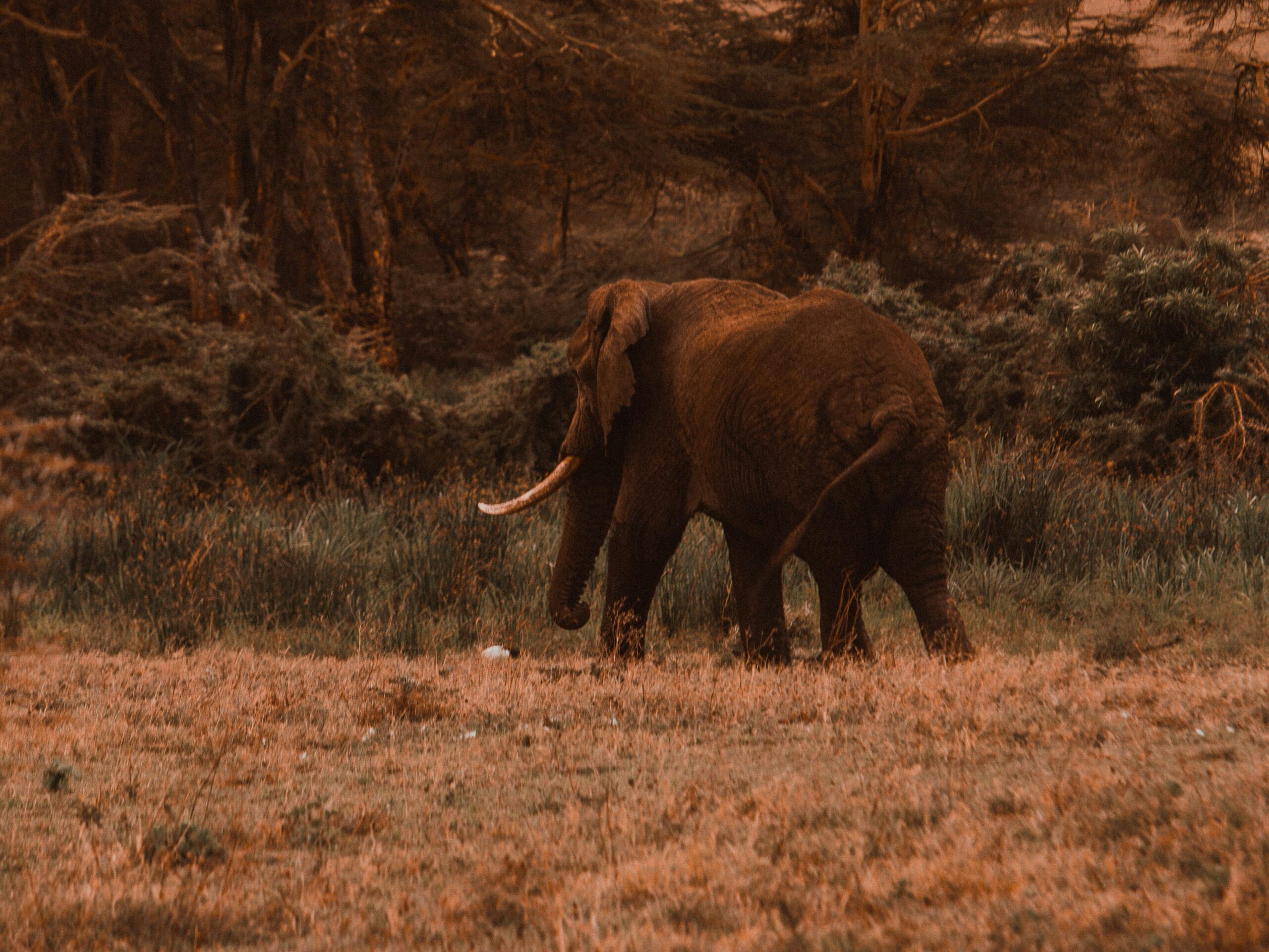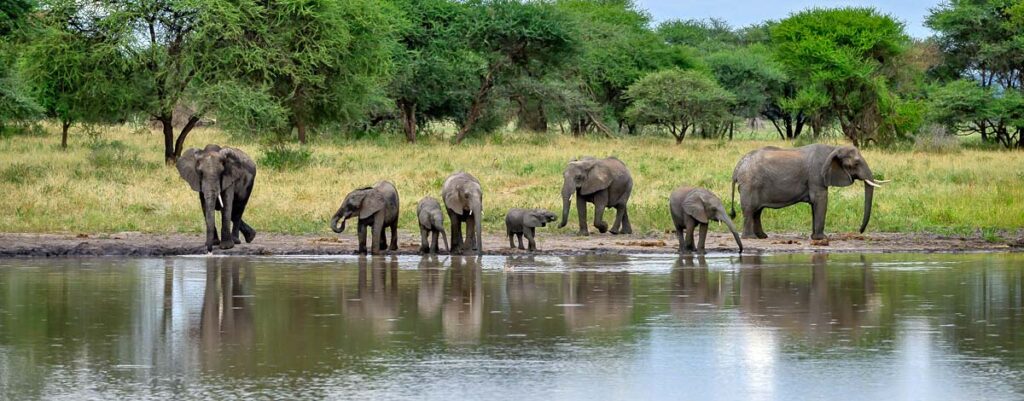Tanzania’s breathtaking landscapes, from the Serengeti’s sweeping plains to Mount Kilimanjaro’s majestic peak and Zanzibar’s turquoise shores, captivate millions of travelers annually. Yet, as tourism flourishes, preserving these natural wonders becomes critical. Sustainable tourism in Tanzania is more than a trend—it’s a vital movement to ensure eco-friendly travel in Tanzania benefits both the environment and local communities. At its core, volunteer tourism in Tanzania empowers travelers to actively contribute to conservation and community development. This comprehensive guide explores how volunteers shape sustainable travel Tanzania, diving into Tanzania eco-tourism initiatives, opportunities, and their transformative impact. Whether you’re planning an adventure or eager to make a difference, discover how ethical tourism Tanzania can redefine your journey.

Understanding Sustainable Tourism in Tanzania
Sustainable tourism in Tanzania focuses on minimizing environmental harm while maximizing benefits for local people and wildlife. It balances economic growth with conservation, preserving Tanzania’s natural heritage, which hosts over 20% of Africa’s large mammals. Tourism significantly fuels Tanzania’s economy, but unchecked growth risks habitat loss and resource depletion.
Key practices include reducing carbon footprints, supporting local economies, and respecting cultural traditions. Community-based tourism Tanzania shines through initiatives like village-managed tours near the Ngorongoro Crater, where proceeds fund schools and healthcare. Green tourism Tanzania promotes low-impact activities, such as walking safaris over vehicle-heavy ones, to protect fragile ecosystems. By choosing sustainable travel Tanzania, visitors help combat threats like poaching and deforestation, fostering harmony between tourism and nature.
The Rise of Eco-Friendly Travel in Tanzania
Eco-friendly travel in Tanzania is gaining momentum as travelers prioritize experiences aligned with environmental values. From solar-powered eco-lodges to carbon-offset programs, sustainable options are reshaping the industry. Tanzania eco-tourism thrives in protected areas like Serengeti National Park, where operators enforce strict no-trace policies to preserve pristine landscapes.
Innovations enhance this shift: apps track carbon emissions, while drones aid anti-poaching efforts. Ethical tourism Tanzania ensures fair wages for guides and porters, with Kilimanjaro climbs now incorporating porters’ welfare programs. This rise is urgent—climate change threatens Tanzania’s biodiversity, altering migration patterns like the Great Wildebeest Migration. Green tourism Tanzania offers immersive experiences, such as birdwatching in Tarangire National Park, that educate travelers on conservation needs while minimizing impact.

Volunteer Tourism in Tanzania: A Game-Changer
Volunteer tourism in Tanzania, or voluntourism, blends adventure with purpose, allowing travelers to contribute to local causes. Unlike traditional vacations, this form of sustainable tourism in Tanzania involves hands-on work, from planting trees to teaching environmental education. Programs immerse volunteers in community projects while offering iconic experiences like safaris or Kilimanjaro treks.
Voluntourism resonates with those seeking meaningful travel, addressing issues like deforestation around Mount Kilimanjaro through reforestation efforts. Other initiatives focus on developing eco-tours and sustainable marketing strategies. Volunteers gain cultural insights and skills, while communities benefit from long-term support. This model exemplifies how volunteer tourism in Tanzania drives ethical tourism Tanzania, transforming tourists into environmental stewards.
Key Eco-Tourism Projects in Tanzania
Eco-tourism projects in Tanzania span marine conservation in Zanzibar to wildlife corridors on the mainland. Coastal programs protect coral reefs and boost marine life through biologist-led efforts. On the mainland, reforestation and sustainable farming projects combat soil erosion near Kilimanjaro, while community-based tourism Tanzania initiatives advocate for cultural preservation and economic growth.
These projects generate income and protect biodiversity. For example, honey harvesting in miombo woodlands offers locals an alternative to logging, aligning with green tourism Tanzania. By supporting these efforts, volunteers contribute to sustainable travel Tanzania, ensuring economic and environmental benefits for communities.
Volunteering for Conservation in Tanzania
Volunteering for conservation in Tanzania offers direct ways to protect iconic species like elephants and rhinos. Reforestation projects in national parks restore habitats while immersing volunteers in Tanzania’s wildlife wonders. Anti-poaching initiatives in areas like Selous Game Reserve involve monitoring and community education, while other programs focus on big cat research and elephant sanctuaries.
These efforts build resilience against habitat fragmentation and poaching, ensuring ecosystems thrive. Volunteers often describe these experiences as life-changing, highlighting the profound impact of volunteering for conservation in Tanzania on both nature and personal growth.
Tanzania Environmental Volunteer Programs
Tanzania environmental volunteer programs cater to diverse interests, from forest protection to renewable energy. Opportunities include working on organic farms, promoting sustainable agriculture, or teaching eco-friendly farming techniques to address food security and soil health. Climate-focused camps around Kilimanjaro educate communities on environmental stewardship.
These programs prioritize long-term impact, equipping locals with skills for self-sufficiency. By joining Tanzania environmental volunteer programs, volunteers help reduce deforestation and promote sustainable practices, contributing to a greener future for Tanzania.
How to Practice Sustainable Tourism in Tanzania
Wondering how to practice sustainable tourism in Tanzania? Start by choosing operators certified for eco-standards. Pack reusable items like water bottles to minimize waste, and opt for public transport or shared rides to lower emissions. Support local economies by dining at community-run eateries and buying handicrafts directly from artisans.
In national parks, adhere to “leave no trace” principles—stick to trails and avoid disturbing wildlife. Learn basic Swahili phrases to show cultural respect, enhancing responsible travel Tanzania. For deeper impact, combine travel with volunteering through service-learning programs in education or conservation. Always verify program ethics to ensure they prioritize community needs.
Eco-Friendly Volunteer Opportunities in Tanzania
Eco-friendly volunteer opportunities in Tanzania abound, offering roles for varied skill sets. Programs connect volunteers with sustainable farming cooperatives, beach cleanups in Zanzibar, or wildlife monitoring in Arusha. Others focus on coastal conservation, including mangrove planting and turtle protection.
Internships in community development and eco-projects ensure lasting impact, blending adventure with purpose. These opportunities allow volunteers to explore Tanzania’s beauty while actively supporting eco-friendly travel in Tanzania, creating a meaningful travel experience.
Impact of Volunteers on Sustainable Travel in Tanzania
The impact of volunteers on sustainable travel in Tanzania is significant. Reforestation efforts have planted thousands of trees, restoring habitats and combating climate change. In wildlife conservation, volunteer data collection informs protection strategies, enhancing ecosystem health. Economically, voluntourism funds rural schools and clinics, uplifting communities.
Volunteers report transformative experiences, gaining empathy and advocacy skills that amplify global support for Tanzania’s environment. This ripple effect strengthens sustainable tourism in Tanzania, making travel more responsible and impactful.
Conservation and Eco-Tourism in Tanzania
Conservation and eco-tourism in Tanzania are deeply connected, with protected areas like Ruaha National Park showcasing successful models. Eco-tourism generates funds for ranger patrols and research, directly supporting conservation. Volunteer programs supporting wildlife and environment in Tanzania focus on ecosystem restoration and anti-poaching, ensuring species like the endangered black rhino endure.
Eco-lodges and low-impact tours blend adventure with preservation, allowing travelers to contribute to conservation while experiencing Tanzania’s wonders. This synergy drives green tourism Tanzania forward.
Volunteer Programs Supporting Wildlife and Environment in Tanzania
Volunteer programs supporting wildlife and environment in Tanzania target critical areas. Opportunities include elephant research, marine conservation, and rainforest protection. Others integrate women’s empowerment with eco-friendly crafts, linking social and environmental goals.
These programs teach locals sustainable practices, creating lasting impact beyond volunteer stays. By participating, volunteers fortify Tanzania’s environmental resilience, ensuring its natural treasures are preserved for future generations.
How Volunteers Help Protect Tanzania’s Natural Heritage
Volunteers play a pivotal role in protecting Tanzania’s natural heritage. From monitoring sea turtles in Zanzibar to educating villagers on sustainable fishing, their work safeguards biodiversity. In Kilimanjaro, reforestation restores vital water catchments, while anti-poaching patrols protect heritage sites like Olduvai Gorge.
Long-term, volunteers inspire global awareness, advocating for Tanzania’s ecosystems. Their contributions highlight volunteer tourism in Tanzania as a cornerstone of heritage preservation, blending action with impact.
Zainab Ansell and Zara Tours
Zainab Ansell, founder and CEO of Zara Tours, is a trailblazer in sustainable tourism in Tanzania. Since 1986, Zara Tours has led eco-friendly adventures, from Kilimanjaro treks to safaris, prioritizing environmental stewardship and community empowerment. Through Zara Charity, Ansell channels tourism profits to support women’s education and conservation initiatives.
Her commitment to ethical tourism Tanzania has earned widespread recognition, making Zara Tours a model for green tourism Tanzania. Volunteers with Zara engage in community projects, aligning with Ansell’s vision of tourism as a force for good, inspiring travelers to contribute meaningfully.
Join the Movement for Sustainable Travel Tanzania
Sustainable tourism in Tanzania thrives when travelers become volunteers, shaping a future where eco-friendly travel in Tanzania is standard. From volunteering for conservation in Tanzania to exploring Tanzania environmental volunteer programs, your actions drive change. Embrace responsible travel Tanzania, support community-based tourism Tanzania, and witness the impact of volunteers on sustainable travel in Tanzania. Whether through eco-tourism projects in Tanzania or programs like Zara Tours, start your journey today—protect Tanzania’s treasures while enriching your life.
Frequently Asked Questions (FAQ)
1. What is sustainable tourism in Tanzania?
Sustainable tourism in Tanzania is travel that minimizes environmental impact while benefiting local communities and wildlife. It focuses on eco-friendly practices such as supporting community-based tourism, reducing waste, conserving natural resources, and promoting cultural respect.
2. How do volunteers contribute to eco-friendly travel in Tanzania?
Volunteers support eco-friendly travel in Tanzania by participating in conservation projects, reforestation, wildlife monitoring, and community development. Their efforts help protect natural habitats, educate communities on sustainable practices, and promote ethical tourism.
3. What are examples of eco-tourism projects in Tanzania?
Eco-tourism projects in Tanzania include marine conservation in Zanzibar, reforestation around Mount Kilimanjaro, wildlife corridors in Serengeti, and community-managed cultural tours near Ngorongoro. These projects combine environmental protection with economic benefits for locals.
4. Can I practice sustainable tourism in Tanzania without volunteering?
Yes. You can practice sustainable tourism in Tanzania by staying in eco-lodges, choosing certified responsible tour operators, supporting local businesses, reducing plastic waste, and following “leave no trace” principles in national parks and reserves.
5. What skills are needed for environmental volunteer programs in Tanzania?
Skills vary depending on the program. Some roles require conservation or teaching experience, while others welcome general help with activities like planting trees, guiding eco-tours, or assisting in community farms. Passion for sustainability and adaptability are key.
6. Why is eco-friendly travel important in Tanzania?
Eco-friendly travel is crucial in Tanzania because it helps preserve biodiversity, protects endangered species, supports local livelihoods, and ensures future generations can enjoy the country’s natural and cultural heritage.
7. How can I find volunteer programs supporting wildlife and environment in Tanzania?
You can find wildlife and environmental volunteer programs in Tanzania through reputable organizations such as Zara Charity, Volunteer Tanzania, and conservation-focused NGOs. Always check that programs are ethical and benefit the local community.